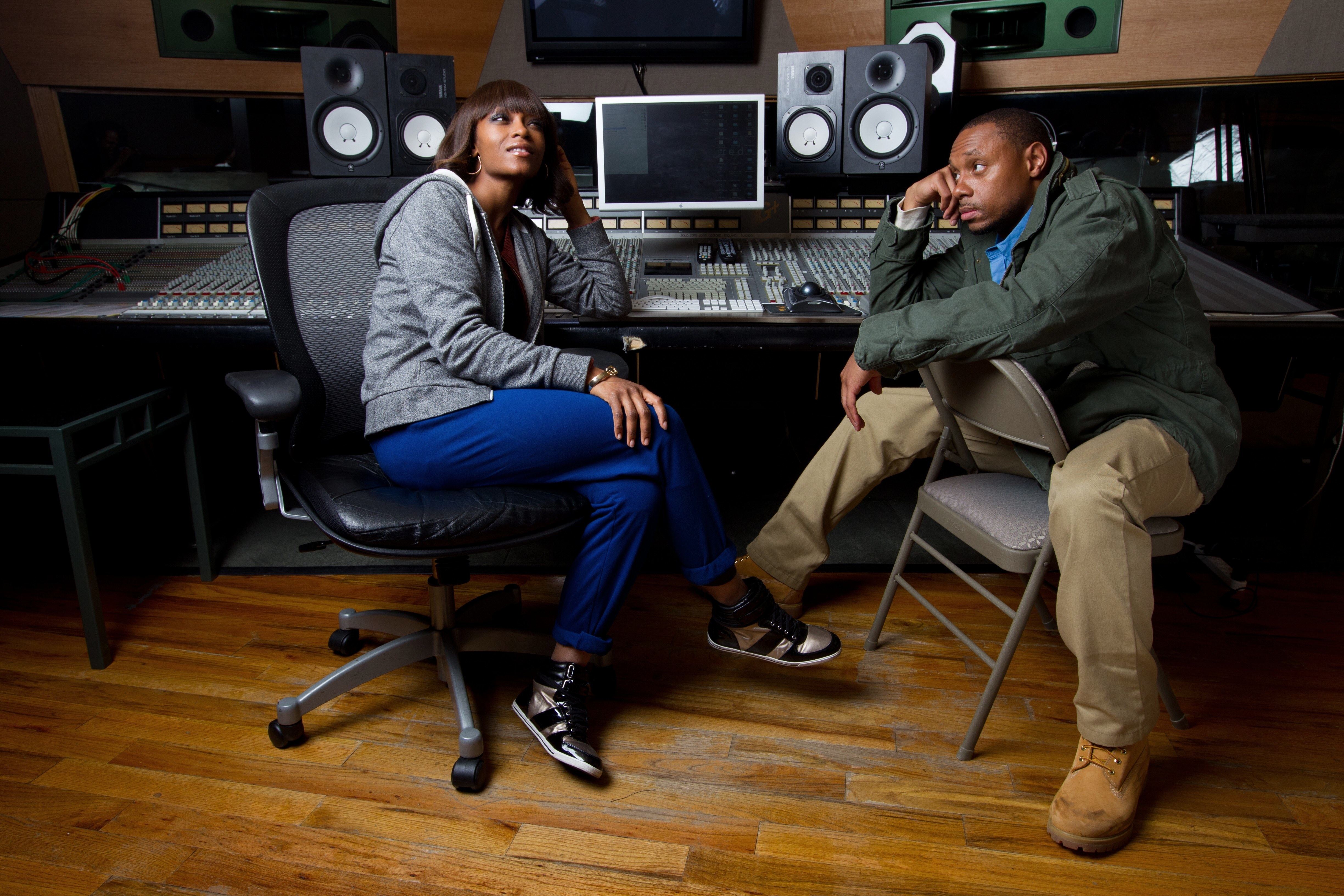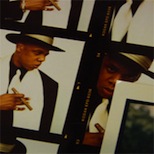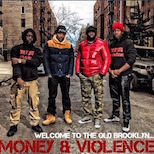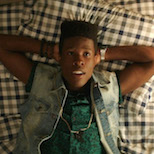Film Director Neil Drumming Talks “Big Words”
08.06.2013
LEISURE
2013 has seen several strong films – Fruitvale Station, An Oversimplification of Her Beauty, etc. – from Black directors make their way to the big screen thus far. First-time film director Neil Drumming added his name to that mix as well with Big Words, a film set in Brooklyn on November 8, 2008 – the night of President Obama’s first election – about three childhood friends who once had aspirations of being the next big group in hip-hop. So far, Drumming and Big Words have received positive acclaim; cogent writing made for intriguing characters (played by Dorian Missick, Gbenga Akinnagbe, Darien Sills-Evans) all providing unique, real perspectives.
Here, Life+Times talks with Drumming about his directorial debut and the film industry.

Life+Times: Why did you pick the date November 8, 2008 to set the movie?
Neil Drumming: It was such an optimistic day. Everyone was being outward and positive and I felt like it would be a good time for my three main characters who were the opposite, they were looking inward and thinking only about themselves. So it was a tool for the writing.
L+T: How did you come up with those three main characters? Are they loosely based on people you knew in real life?
ND: It was definitely a combination of people I knew in my own life, myself, of course, as a fan of the music and a person that grew up a certain way along with a lot of people in my age group. It’s a combination of that and more specifically, I was an entertainment journalist for a long time, so I interviewed a lot of people that were directly involved in the music at that time. Putting all that together, it seemed very natural and those characters came to me very naturally.
L+T: How did your writing as an entertainment journalist influence your writing as a film director?
ND: I guess writing and interviewing people, it lends itself to listening to how people talk and also trying to figure out what people mean depending on your awareness of what they actually say. So that helped me having that underneath the characters. Also, writing professionally teaches you how to read, edit and go back over your work, and make sure things are tight. So in writing a second draft of the film I think I did a pretty good job of tightening it up from the first draft.
L+T: The phrase “big words, small talk” comes up in the film. Is that where the title came from?
ND: Well, the movie was called Big Words almost from the very beginning. I was just thinking about names for rappers and I thought Big Words would be a cool name; it also had a double-meaning because there’s a lot of words in the move that may not necessarily be “big,” but they have big meanings. So that was sort of the impetus behind it. That’s the reason I chose the name. “Big words, small talk” is just a line that I wrote while I was watching a movie that just made me laugh.
L+T: As an African-American writer and director – the three main characters are all also African-American, all coming from very different perspectives of life – what is the importance and significance of being able to tell one’s own stories?
ND: I think that’s a function of more access to filmmaking. The more African-Americans that choose to make films, that are drawn to this industry, the more diverse stories you’re going to see as long as they have some sort of creative control. That’s the function and the value of making independent Black film, you come from a place where you get to be a little more idiosyncratic about the stories you choose to tell. It’s a difficult process and a hard road because making an independent film is not very easy. That said, it is becoming easier with technology and knowledge of filmmaking, and also through outlets and people like Ava DuVernay, who’s sponsoring and being a proponent for Black independent film. Her organization AFFRM [African-American Film Festival Releasing Movement], is definitely encouraging in terms of letting people know in their minds that they can possibly find a distributor and an audience for their stories. Black people are people – we have a bunch of different stories, we like stories about everything. I don’t know if it hasn’t been that well-represented over time, but I think it’s getting more well-represented as we get further into the business.
L+T: How has the response been from critics and audiences?
ND: It’s been better than I could have imagined. We got a lot of really good reviews: The New York Times wrote us a strong review. L.A. Times wrote a strong review; Hollywood Reporter, Village Voice, and IndieWire. We’ve gotten a lot of really positive press. I got to be on CNN, ABC and it’s been nice. The fans seem to be really into the movie, it seems to strike a chord with Black individuals. I’m sort of hoping – it’s not that I want to reach a broader audience – I want to reach a bigger audience but it would be nice for more people to see it because so far people seem to relate to it. That’s really why I wrote the movie, I hoped people could see it and find something of themselves in it and relate to it, enjoy it and laugh. So far that seems to be the case as we go from city to city with the movie on the tour.

L+T: It’s playing in several cities in the coming weeks. What’s more for the film?
ND: The plan right now is the tour. We want to get to as many cities as possible with this first push. And then I believe, there will be opportunities where if you have enough people in one city that want to see the film, they can bring that film there. So I’m hoping we grow another life in that regard. Also, we plan to release the movie on Netflix and Redbox and those other ancillary release formats, so hopefully people will get to see the film through those methods as well.
L+T: What’s next for you as a film director?
ND: I have another screenplay that I finished and we’re working on producing right now. We’re trying to put it together, it’s supposed to be in production by early next year. It’s different than Big Words, it’s a science-fiction romance, but it’s still funny and it’s still grounded in an urban setting, I wanna shoot the whole thing in Queens and make it an earthy but kind of quirky movie at the same time. That’s my next project, we’re prepping for that right now, trying to get together a cast and funding. It’s never-ending, you try to keep going. We’re trying to build off our momentum, good words and praise for Big Words, and build that into something new.
For more information about Big Words, including playdates and locations, click here.





